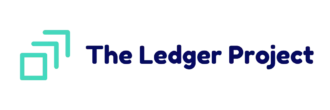Accounting is increasingly intersecting with data science, urging accountants to upskill beyond traditional tools like Excel for data analysis. While Excel remains essential, newer technologies enable complex accounting analytics on large datasets, such as outlier detection and statistical analysis. With AI technologies like Chat-GPT and Microsoft Co-Pilot, now is the opportune time for accountants to upskill in tools like R programming.
R Programming is a free open-source programming language that is made for advanced analytics and data visualization. About 8 years ago, I started my programming language journey as I was responsible for processes that required a significant amount of manual data manipulation while under pressure from key financial reporting deadlines. When I first started coding, I turned to Python. Python is a great programming language but once I discovered R and R Studio, I never looked back.
R/RStudio are very beginner friendly and ease the learning of coding as it provides an easy to navigate interface, almost like Excel and gives instant code feedback and suggestions to avoid spending lots of time fixing issues. On top of that, add in the tidyverse library which makes data wrangling so much easier and intuitive. I got hooked. The part that was difficult for me was there was no roadmap for accountants to learn to code. The lack of content targeted for accountants is the main reason why I started The Ledger Project. R provides accountants the ability to enhance operations and deliver on accounting analytics. Here are some additional reasons why learning R is beneficial:
Ease of Learning
R is accessible for accountants. Its intuitive syntax makes the language easy to read and understand, especially the tidyverse package (see below). The R programming community is very active. There are numerous resources available for learning R, including online courses, forums and tutorials tailored to different skill levels. As generative AI is widely available, learning R has only been easier as tools like Chat-GPT can assist in your learning journey.
Collaboration
As accountants find themselves increasingly at the intersection of technology and analytics, adopting tools like R becomes essential for enhancing collaboration. The ability to present data through visuals and code during requirement sessions and prototyping phases dramatically improves communication efficiency and effectiveness. This hands-on, practical approach enables clearer expression of concepts and requirements, moving discussions from theoretical to tangible outcomes. Furthermore, leveraging R’s capabilities during the planning stages of ERP implementations or when evaluating vendor applications ensures that expectations align with reality, potentially saving significant resources before committing to major contracts. This level of collaboration and foresight, facilitated by R, is invaluable in modern accounting practices where data-driven decision making is paramount.
Longevity
Investing time in learning a single tool can be daunting and risky, given the ever-changing tech landscape. However, R stands out for its long-term value to both individuals and companies. It is not only widely used but also remarkably versatile, facilitating seamless integration with other key tools and languages such as Tableau, Power BI, and Python. This versatility extends across a wide array of data-related tasks, from data preparation and exploration to machine learning, process mining, and visualization. Deeply entrenched in the analytics community, R remains an indispensable asset in the analytics toolkit, offering a viable pathway for accountants seeking to enhance their skills.
Installing R and R Studio
If there is interest, I’ll post more instructions and tutorials on how you can use R and R Studio as an accountant. This article was created using R programming.
Below are instructions on how to install:
Setting Up R and RStudio
- Install R: Visit CRAN (The Comprehensive R Archive Network) and download R for your operating system. Follow the installation instructions.
- Install RStudio: Go to the RStudio Download page and select the free version of RStudio Desktop. RStudio is an integrated development environment (IDE) which makes using and navigating R much easier. Installing R is required to use RStudio.
- Exploring Tidyverse: Tidyverse is a collection of R packages designed for data science that makes data manipulation, visualization, and analysis more user-friendly. When I was introduced to it in graduate school, it completely changed the way I understand and write code. Install it by running
install.packages("tidyverse")in your RStudio console, and then load it withlibrary(tidyverse).
If you have feedback, questions or want to learn more, email me at mike@theledgerproject.com.
